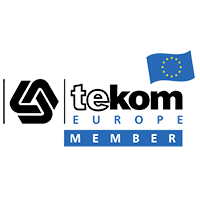Life as an IT Project Manager
IT Project Manager Zofia Naskalska sits down with us for a new “Life as a…” segment.
What does a normal day in your shoes look like?
Zofia Naskalska: I think that the key to a Project Manager’s day is multitasking. Our job always revolves around the word DEADLINE – whether it’s the one required by the client, or one agreed upon with a translator or just one step in the process; such as timely processing of translated files so that they can be sent to the DTP guys in time. For some projects even a small slip in the previously planned workflow may result in the whole timeframe collapsing. Therefore a big part of our everyday work is scheduling and making sure these deadlines are met, which often means doing a few things at the same time.
My workday usually starts around nine and the first thing is always checking my emails and then prioritizing the tasks ahead. Knowing what needs to be taken care of at once and which tasks can wait a bit longer and still be done in time, is the key to making your day work. Once everything is flagged in urgency order, there’s usually time for coffee or breakfast and talking to your colleagues.
Then it’s the regular stuff, like putting together quotes for the clients, starting new jobs by choosing the right translators and reviewers, discussing schedules and scopes, managing the jobs in progress by handling queries from translators, helping them with technical issues etc. There are usually some meetings or calls to discuss production and workflows for different client accounts or to find solutions for any issues that may arise along the way.
I try to be done with all the urgent matters and deliveries by early afternoon and then I usually take some time to pick up my kids from school and attend to them. Once back at home I switch the computer back on and deal with more administrative stuff, like submitting completed projects for invoicing, confirming payments for suppliers or checking statuses in long-term projects. The work can sometimes stretch into the evening, but being able to work from home gives me some flexibility in managing my time and balancing work and family life.
In your experience, what is the most challenging part when managing IT projects?
ZN: Some people joke, that all you need to do a PM’s job is to have a keyboard with only one key – a big „forward” button. There is some truth to it, as we do rely a lot on our co-workers and suppliers, but it works both ways so it also means that almost everything in the project comes back to us. And, that when there’s a problem, the PM is the one who everyone turns to for decisions and solutions. Most often these are timeline issues – the translator is late with their delivery and we need to see what can be done to make sure the original deadline promised to the client can be kept. If there are any technical issues with the files, the linguists or the DTP team or whoever is working on them at the moment, will always come to the Project Manager, hoping for a fix.
This is a common issue for IT projects as we mostly deal with software files which come in various different formats and need to be “handled with care”, so that their structure or coding is kept. For the same reason the clients often have their own ideas about the translation tool to be used, not all of which are preferred by the translators – which usually means some technical issues are to be expected. The more of those, the bigger the risk of a delay in the process and the more stress comes into the job.
What advice can you provide IT companies starting their localization journey?
ZN: I guess that the best rule for IT companies that need to localize their product is to maintain good quality and consistency in the source files. When developers work on new apps they should keep in mind that what they write will be translated later and that in order for this to be possible, the source needs to be universally understandable. We worked with a company whose source files were so unclear and full of abbreviations made up by the developers writing them, that no one could work out what they meant. I remember one case when we sent a query to the client to find out the meaning of some software strings and they came back to us saying that the person who wrote those files no longer works for them and they had no idea what those strings meant either! One can also sometimes find amusing bits in the source text, like “bla, bla, bla…” or, in one case “something, something, no one reads this anyway…”!
Why do you think Project Management is an important part of the translation process?
ZN: As mentioned before the PM is at the heart of a translation project and is the person who makes sure the project is completed successfully. It means the obvious things like planning the process and keeping the schedule, but sometimes it also means being there for the translator whose hard drive failed in the middle of their work or offering assistance to a stressed out client who just realized they need to translate a 200 page manual into Chinese a week before a presentation for their customer when it just happens to be holiday in China!
At Argos we’re really lucky to work with a wide range of linguists and QA specialists, to have a team of skillful localization engineers we can rely on with literally anything (I’ve seen them fixing a loose bumper with duct tape in a colleague’s car) and a talented DTP team who are real experts in their field. Still – making sure the combined talents of all these professionals lead to a timely delivery of the fully localized product back to the client – is a Project Manager’s job!
What do you believe is essential to maintaining a successful translation project?
ZN: As said before, the essential things are good organization and scheduling but the less obvious while equally important factor is to realize that each project is made with the work of people who are behind every step of the process. Being able to talk to them and maintaining good relationship with both the client and all the suppliers involved is the key to success. We mainly depend on the translators and their work and have to keep in mind that unexpected things happen that may affect the timeline. Project Managers probably hear at least as many stories about broken computers, power outages, sudden deaths in families and cats spilling coffee over the keyboard as school teachers hear about the dogs eating their students’ homework. The key to success though is to be able to find a solution for all of those situations (and it doesn’t really matter if they are real or not) and not to lose grip over the project when things get stressful!
While I’ve known some good male project managers, my general observation is that women make the best PMs as they are usually more capable of doing many things at once, paying attention to details and have both good organization and people skills. Some people also say that being a mother gives you good practice for PM’s work as experience in multitasking and keeping your cool in a crisis is a given! I don’t know if that’s true, but all I can say from my own experience is that coming to the office and dealing with whatever challenge managing projects may throw my way, tends to be easier to handle than managing a handful of kids!
Have a look at further blog posts from our “Life as…” series:
- Life as a Language Lead
- Life as a Multimedia Localization Project Manager
- Life As a Resource Specialist
Argos Multilingual – our mission is to provide high quality innovative language solutions to our customers while being the most respected business partner in the localization industry. We provide a full range of language translation services that cover all our clients’ needs. Contact Us to discuss your specific requirements for your next project!




